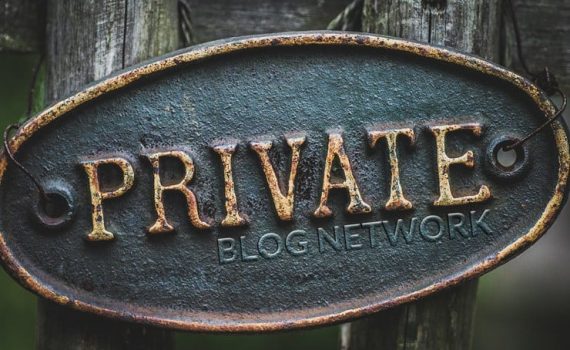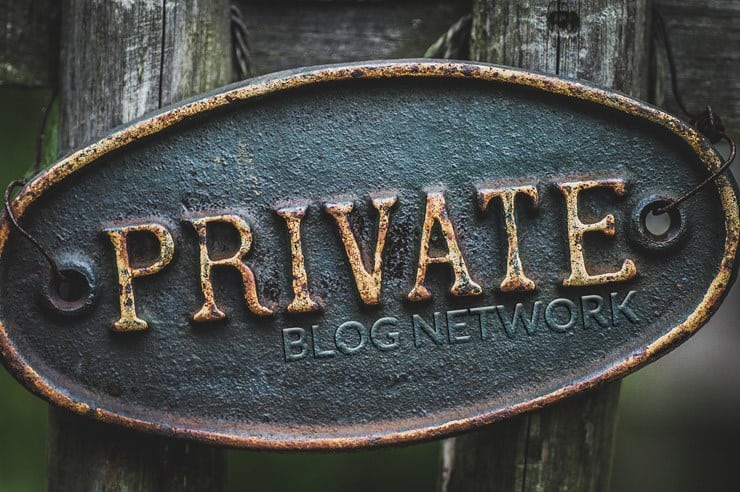
PBN backlinks are on the danger of being hit by Google
Category : Link building
PBNs are risky. But if you set them right – you’re protected. Setting them right means using different hosting accounts, different templates, never re-link your ‘secondary’ websites between each other and many other techniques that we will cover down below.
All in all, most Industry experts agree that you’re intact and out of danger if your backlinks from PBN are somewhere in the range of 5-20% of all your backlinks. This doesn’t mean you can’t use more – you can, but you need to be even more careful and wipe out all footprints.
It’s not illegal to use a private blog network. There are no laws governing the creation or the linking of websites. However, you don’t have to content with laws when you’re dealing with web marketing, at least not beyond FTC regulations and laws against specific products, and so on. No, you need to content with Google’s rules.
Google is a monopoly on search, and as such, their word is essentially law. If they say a specific technique is disallowed, and they choose to penalize any site that uses the technique, it’s effectively illegal. Oh, you can certainly use the technique, but when Google discovers it, your site will tank and/or be removed from the search rankings entirely.
Obviously, when the survival of your business hinges on your search ranking and the traffic it brings in, you don’t want to step on the wrong site of the line Google draws in the sane.
Depending on the quality and integrity of these PBN sites, and whether they are exploitative, it’s generally a very bad idea to gain links from PBNs. Generally speaking, PBNs have been targeted by Google Updates for spammy content and artificially influencing rankings in search engines. The simplest way to think about it is to ask yourself “what is the purpose of Google?” The answer is that they want to make useful information as readily available as possible. A private blog network works against this ‘code of conduct’, as it is not created for the benefit of the end users. It’s created to cater for the website it links to, and to influence the algorithm evaluation of a site. Therefore, it’s not an ideal way to gain links – if this link building tactic is abused, you might face a manual penalty from Google.
In the competitive world of SEO, people continually seek opportunities that will put them over other businesses. Ideally, they should develop a sustainable SEO strategy based on the best on-page SEO and white-hat link building practices. Doing so allows them to rank on Google organic search for their target keywords for a long time.

PBN backlinks
As good as these tactics sound, the results will only manifest if you practiced them consistently for months, if not years. Not to mention, you have to play catch up with your competitors who already hold the advantage over you by practicing the same tactics years before you. Therefore, it would probably take a miracle before you can outrank the best in your industry at the top of Google search.
This reason is why some people implement black hat SEO tactics. Since they don’t stand a chance against established businesses with deeper pockets dedicated for their SEO campaigns, they take a different approach in which they can rank as high as the first place on Google organic search in less time.
If this sounds like a pipe dream, it’s because it is. Black hat SEO can get you at the very top of search results for your keywords faster than any other tactic. However, it’s also just as fast when Google will penalize your site, never to be seen on search engines again.
This is the challenge that most SEO have to undergo. They need to strike a balance between finding the best sustainable way to increase your search rankings for your target keywords without getting penalized by Google.
When you use PBNs, you are basically in an uphill battle against Google. Your website, your traffic and your ranking are at their mercy as they can penalize you anytime. Your hundreds or thousands of visits or five-figure monthly income can go to zero overnight.
It’s a decision only you as a business owner can make. If you think the reward is high and far outweighs the risk, then it’s completely fine if you want to use PBNs.
The biggest risk of all: being stamped on by Google.
There are many stories of website owners waking up to see that their websites have been completely removed from Google, their first page rankings lost, and their highly-targeted visitors replaced by the tumbleweed and ghostly analytics.
Sloppiness and human error that create footprints and potentially lead to algorithmic or manual penalties from Google. If you look at the more public “Google Hammers” that have come down on PBN users in recent years, it’s because of silly mistakes like using the same public Whois information across multiple networks, doing highly public case studies on PBN-driven money sites, or hosting PBNs on low quality SEO hosts.
This is why it’s essential to have the right systems in place from the beginning, to ensure that you can scale a PBN without getting sloppy. No shortcuts.
I still believe that PBNs are a relatively low risk ranking strategy if done correctly, but that’s the problem- most people take shortcuts and don’t build them the right way.
Read more How to use PBN backlinks to boost website ranking
_______________________________________________________________________________
Please contact us for seo service packages at TDHSEO.COM.
TDHSEO Team
Email: tdhseo@gmail.com
Skype: tdhseo
https://www.facebook.com/tdhseo
Thank you!